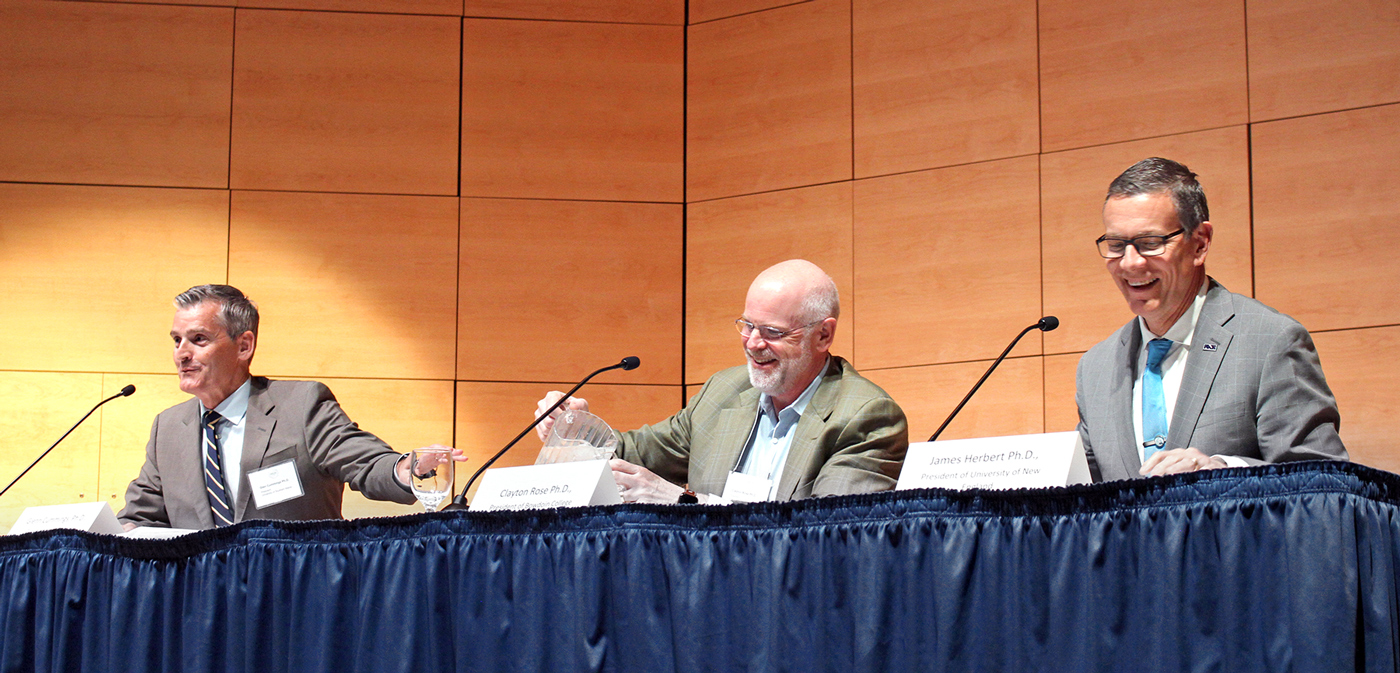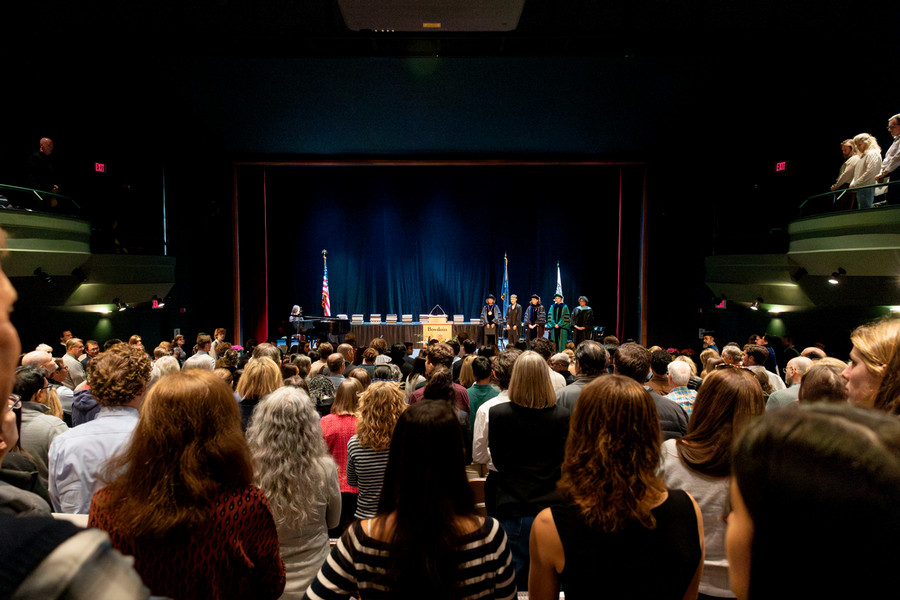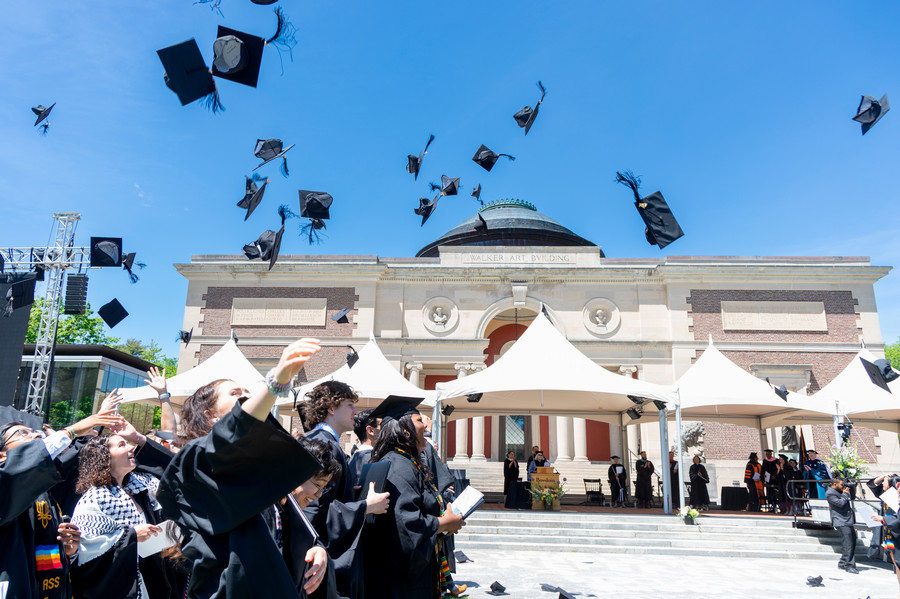President Rose Represents Bowdoin at 15th Annual Northeast Campus Sustainability Consortium Conference
By Bowdoin NewsThe Northeast Campus Sustainability Consortium (NECSC) was established in October 2004 to advance education and action for sustainable development on university campuses in the northeast and maritime region. More than forty institutions of higher education from the northeastern US and eastern Canadian provinces meet annually to advance topics and initiatives in campus sustainability.

USM president Glenn Cummings opened the conference with a keynote addressed to the campus sustainability staff members present at the event. "Your job can sometimes feel like a lonely place—like you're pushing the whole boulder uphill by yourself. But everyone who is gathered here at this conference: this is your community."
The three-member panel took turns answering questions moderated by Cummings before opening the floor to questions from an audience that included sustainability staff, community members, and students.
President Rose spoke at length about Bowdoin's sustainability initiatives, including new buildings and carbon neutrality—and also suggested that some of the most impactful progress is harder to see.
"Communication, collaboration, critical thinking, engaging in dialogue—these are all tools that our students will need in order to talk directly to the people who have the power in these larger conversations in society. We must have the intellectual, emotional, and intestinal fortitude to engage with those who most strongly disagree with us."
Each of the panelists referenced the impact that students can have within their own campus communities: students can incentivize and model sustainable behaviors at a personal level, among peers, in addition to working toward larger policy changes.
President Rose also noted the challenges of keeping pace with changing student interests and the need for administrators to continually learn on the job. "Students arrive understanding that this problem is now central to who we are. As a result, I'm learning all the time—I'm being pushed all the time."
Other sessions over the two-day event covered carbon neutral heating, moving toward zero waste, carbon offsets, Passive House standards, solar research, and best practices for campus community engagement.
In June 2007, Bowdoin joined 270 colleges and universities in signing the American College and University Presidents Climate Commitment and pledged to achieve carbon neutrality by 2020. In April of 2018, carbon neutrality was achieved two years ahead of schedule, making Bowdoin only the third college in the country to have achieved its commitment.



